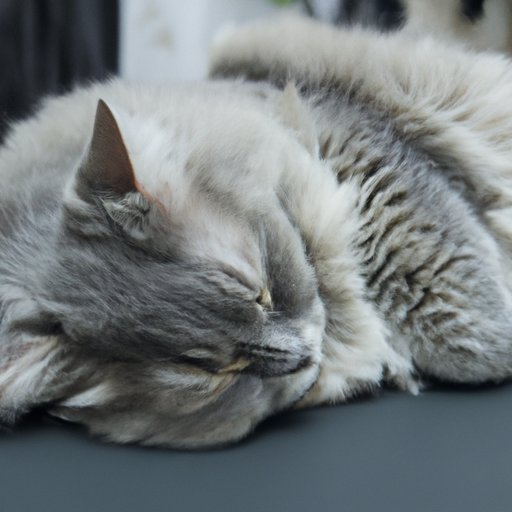Why Is My Cat Sleeping So Much?
If you’re a cat owner, you may have noticed that your furry friend spends most of the day sleeping. In fact, it’s not unusual for cats to snooze up to sixteen hours a day. However, if you’ve noticed that your cat is sleeping more than usual, you’re not alone. Many cat owners have encountered this issue, and there are several reasons why it may be happening. In this article, we’ll explore the most common reasons why cats sleep excessively and provide tips on how to address the issue.
Medical Reasons
Excessive sleep in cats may be a sign of an underlying medical condition. Medical reasons for excessive sleep in cats include:
- Anemia
- Chronic pain
- Diabetes
- Hypothyroidism
- Kidney disease
- Liver disease
- Upper respiratory infections
Look out for other symptoms such as changes in appetite or behavior. If your cat is sleeping excessively and exhibiting other concerning symptoms, it’s recommended to seek veterinary care immediately.
Aging
As cats age, their sleep patterns change. Senior cats tend to sleep more than younger cats, and their sleep is often lighter, making them more easily disturbed. Providing a comfortable and safe environment is crucial for senior cats to feel secure and sleep soundly. Additionally, exercise and mental stimulation can keep older cats active and improve their sleep patterns.
Provide senior cats with comfortable and supportive bedding and make sure they have easy access to food, water, and the litter box. Consider adding ramps or steps to aid mobility. Encourage moderate exercise and mental stimulation with toys or interactive feeders. This can help maintain cognitive function and mobility and enhance their overall well-being.
Boredom
If cats lack stimulation, they may sleep excessively out of boredom. You can enrich your cat’s environment by providing toys, cat trees, and interactive feeders. This can keep them occupied and active, reducing the amount of time spent sleeping.
Playing with your cat or providing opportunities for exercise can also help reduce boredom. Consider scheduling playtime with your cat several times a day and providing distractions like playing with a laser, feather toys, or puzzle toys.
Stress or Anxiety
Changes in routine or environment can cause stress in cats, leading to more sleep than usual. For example, if you’ve moved recently, your cat may feel stressed and sleep more than usual. Strategies for reducing stress and anxiety in cats include providing hiding spots, pheromone diffusers, and other calming treatments.
If your cat shows signs of severe anxiety such as aggression or excessive hiding, seek veterinary care for further evaluation and potential medication.
Breed Tendencies
Some breeds of cats naturally sleep more or less than others based on activity levels and temperament. Persian and Ragdoll cats, for example, are known for their laid-back and docile personalities and may sleep more than average. Bengal and Siamese cats are more energetic and may sleep less than other breeds.
When selecting a cat, make sure to choose a breed that matches your lifestyle and preferences. If you’re looking for a more laid-back companion, consider a breed that tends to sleep more. Conversely, if you’re looking for a more active and playful cat, consider a breed that sleeps less.
Diet
Poor diet or obesity can lead to lethargy and excessive sleep in cats. Choose a high-quality cat food that is appropriate for your cat’s age and activity level. Avoid free-feeding and monitor portion sizes to maintain optimal weight. Follow a feeding schedule, avoid overfeeding, and encourage exercise and playtime to keep your cat healthy and active.
Normal Behavior
Finally, some cats are just naturally lazy! If your cat has always slept a lot and there are no other concerning symptoms, it may just be their normal behavior. However, if your cat suddenly starts sleeping more than normal, it’s recommended to seek veterinary care to rule out any underlying medical conditions.
Conclusion
If you’ve noticed that your cat is sleeping more than usual, there may be several reasons why. Medical conditions, aging, boredom, stress, breed tendencies, diet, and normal behavior all play a role in the amount of sleep cats need. It’s essential to provide a comfortable and stimulating environment and monitor your cat’s behavior for signs of distress or changes in sleep patterns. By following the tips outlined in this article, you can help your cat achieve healthy sleep patterns and overall well-being.
